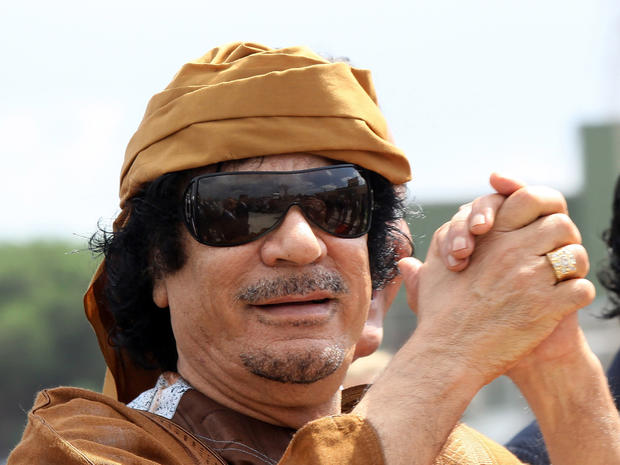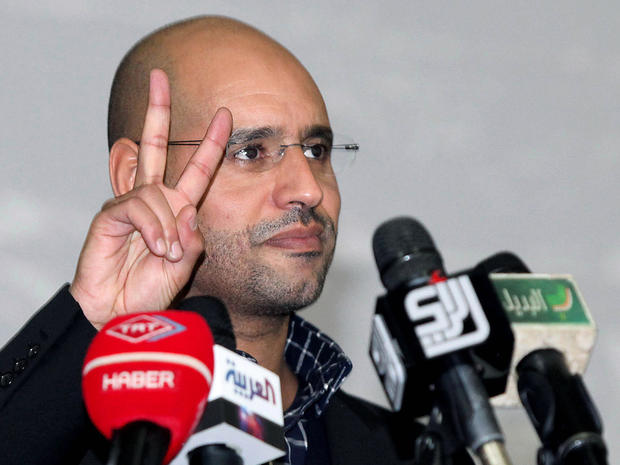Qaddafi's cadre one step closer to justice
UNITED NATIONS - The prosecutor for the International Criminal Court will submit his first applications for arrest warrants for members of Libyan leader Muammar Qaddafi's regime - possibly for the autocrat himself - "in the next weeks," based on evidence of war crimes being committed "as a matter of policy."
In an advance copy of the report to the United Nations Security Council obtained by CBS News, the ICC's chief prosecutor, Luis Moreno-Ocampo, says evidence in a newly-created crime database shows "shooting at peaceful protesters" by Qaddafi's security forces has been systematic.
Complete coverage: Anger in the Arab World
The report notes that in February, just before the Security Council unanimously voted to refer the Libya investigation to the ICC, the Libyan leader's son Saif al-Islam Qaddafi said his country would direct a national commission to investigate allegations of war crimes. The prosecutor, however, has "not found any genuine national investigation."
Moreno-Ocampo says in his report that "available information provides reasonable grounds to believe that crimes against humanity have been committed and continue being committed in Libya," including murder, imprisonment or other severe deprivation of physical liberty, torture, and persecution.
The report says there is relevant information concerning rape, deportation and war crimes against civilians not taking a direct part in the fighting with government forces.
The report paints a grim picture: "Dead bodies were removed from streets and hospitals. Doctors were not allowed to document the number of dead and injured admitted to hospitals after the violent clashes began. Security forces were allegedly stationed in the hospitals and arrested injured protesters who sought medical treatment. Victims of rape have reportedly been arrested and subject to harassment."
The report does not name individuals, but speculation is widespread in European and Arab media that the warrants could include Qaddafi, his son Saif al-Islam (seen at left), former foreign minister Moussa Koussa, the former foreign minister, and Abu Zeyd Omar Dorda, a former prime minister who is now head of one of the Libyan security agencies.
Qaddafi himself appears entrenched -- unmoved by calls for his immediate departure by many world leaders, including President Obama, British Prime Minister David Cameron, France's President Nicolas Sarkozy and, this week, Turkish Prime Minister Recep Tayip Erdogan.
The report also comes at a time when intermediaries are absent: The United Nations is trying to return to Tripoli after their international staff left when mobs attacked a U.N. office in Tripoli following the NATO bombing of Qaddafi's compound. An estimated 665,000 people -- mostly Libyans -- have fled the country since fighting began.
"A crowd of people entered a U.N. compound and some vehicles were taken. All U.N. staff are safe and accounted for," Martin Nesirky, the U.N. Secretary-General's spokesman, tells CBS News. "The decision to leave the country was based on the overall security situation in Tripoli. The United Nations international staff in Tripoli have temporarily left the capital and are in Tunisia."
This story was filed by CBS News foreign affairs analyst Pamela Falk


